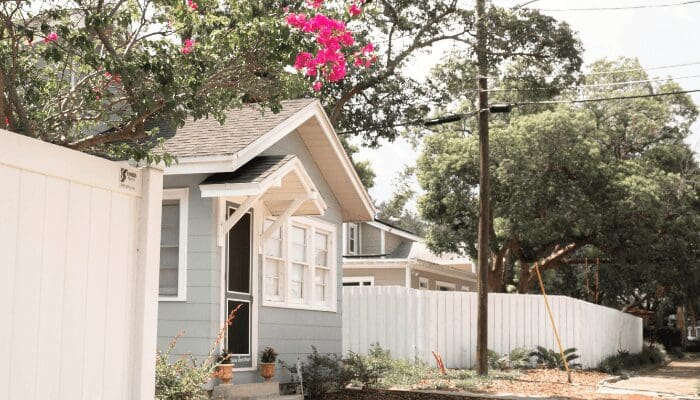The 5 Major Telltale Signs Your Dream Home is a Nightmare
- Published on
- 2-3 min read
-
 Annie Sisk Contributing AuthorClose
Annie Sisk Contributing AuthorClose Annie Sisk Contributing Author
Annie Sisk Contributing AuthorAnnie Sisk has written extensively about home decor, home repair and entertainment for many websites including the Baltimore Sun.
Congratulations! You’ve found the home of your dreams. It’s got everything you had on your “must” list and more than a few of your “nice to haves” as well.
Spacious, enough room for a pool, the right number of bedrooms and baths, not to mention that huge jetted garden tub and walk-in shower in the master bath. It’s definitely a dream come true.
But what if it isn’t? Sometimes, the house of your dreams is actually a nightmare for an unwary buyer. Here are 5 telltale signs to watch out for while you’re home shopping:

1. The price is too low
Remember that old maxim: If something seems too good to be true, it probably is.
If you’re seeing a gorgeous, seemingly well-constructed home that’s selling for a substantially below-average price considering the neighborhood, then it’s time to start asking specific and detailed questions.
Check crime reports for the area with the local police department; in most states, statistical information and specific reports are subject to open records laws (unless there’s an active, ongoing investigation).
Also, talk to your home inspector and be willing to pay more for a closer look.
Finally, don’t discard the utility of simply asking why the property is selling for a relatively low price. Often, the answer is as simple as “the seller needs to relocate for a job and is happy to take a bit of a cut so they’ll be able to purchase in their new town.”
But if that’s not the case, you’ll want to pinpoint exactly why that price is so low, or reconsider the purchase entirely.
2. It’s been heavily staged
Model homes have a certain “new car” feeling to them. From the furniture (nouveau Pottery Barn, nothing too aggressively modern or precious) to the wall colors (neutrals, but not white) to the smells (chocolate chip cookies baking in the oven? Check!), everything about the house is calculated to trick you into thinking you’re already at home.
The same is true of highly staged properties. Vacant homes seem smaller and typically do not sell nearly as quickly as ones with at least some furniture in it, so don’t discount a property simply because it’s empty.
However, elaborate staging can hide a multitude of problems, from shoddy paint jobs to cracks to a funky layout that’s really not adaptable to your lifestyle.
It’s important to see the house for what it really is. Try looking beyond the furniture and artwork to take in each room as a whole.
Sketch a quick floor plan, if you don’t have access to one already. Consider how you’d actually live in these rooms with your furniture and decor. And always make sure you get a thorough home inspection.
3. Everything’s just great—except for the old, crumbling roof
Or floor, or foundation, or anything that will require a substantial investment to fix at some point in the future.
Significant repairs can really add up. That’s not to say that you should never choose a property that needs work.
In fact, you may be better off with a fixer-upper. Just be sure you know what you’re buying and exactly how much you’ll pay for the home when all is said and done.
4. The property is in a flood zone
This is one nightmare you’ll want to address upfront. Properties that are located in flood zones are subject to much higher insurance premiums.
When water infiltration does take place, mitigation and repair can be extremely costly. Additionally, with the ever-increasing risk presented by climate change, past floods might even look like mud puddles compared to future events.
Check any property you’re considering purchasing with the FEMA flood map database. Simply type in the property address or coordinates and hit search.

5. You’ve got big plans for that property
If you’re not completely happy with the home or any feature of it from the jump, you probably have an idea in mind for expanding or renovating it to bring it more in line with your vision.
That’s all well and good. But you’ll definitely want to consult the local zoning and code enforcement regulations for your new property to make sure your plans are even permissible.
Purchasing a property with the expectation that you’ll build an addition for your mother-in-law, only to find out there’s no way to construct an addition without running afoul of regulations could be a costly mistake. Always do your research first!
Header Image Source: (Sidekix Media/ Unsplash)
